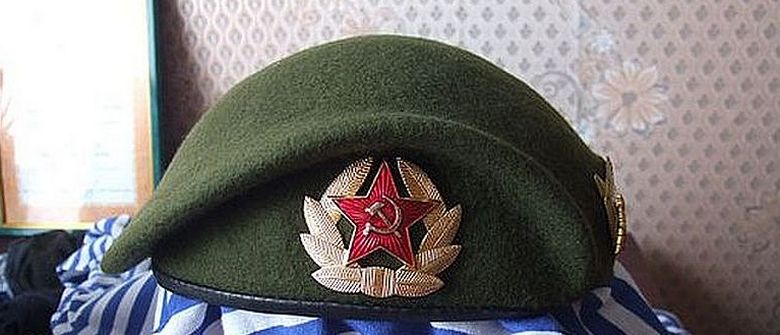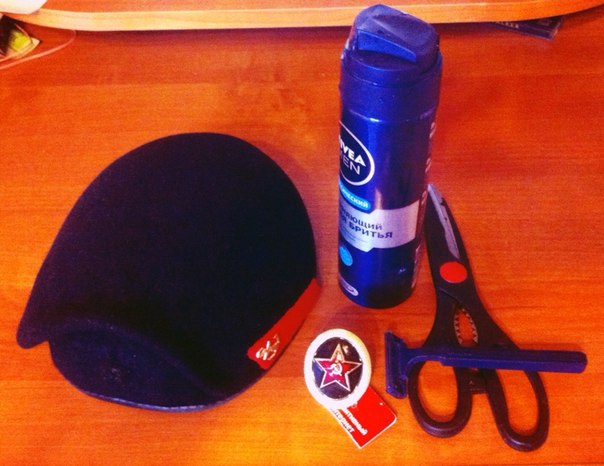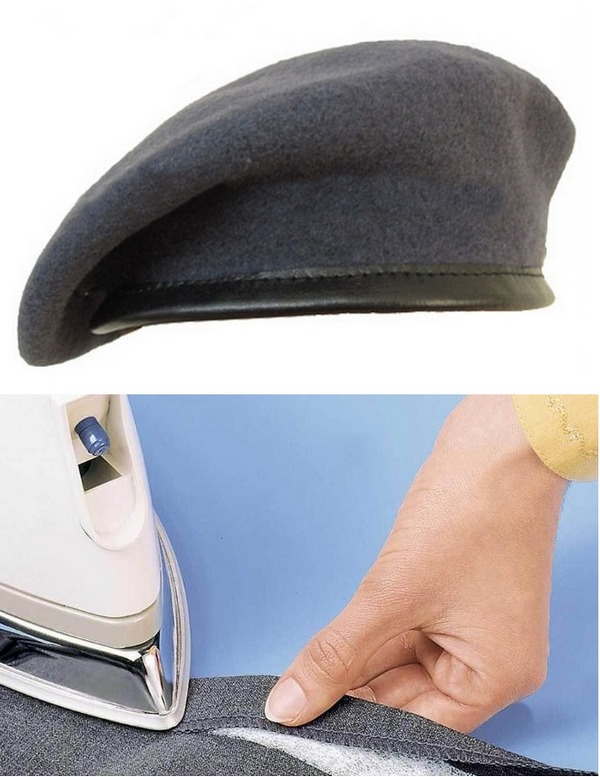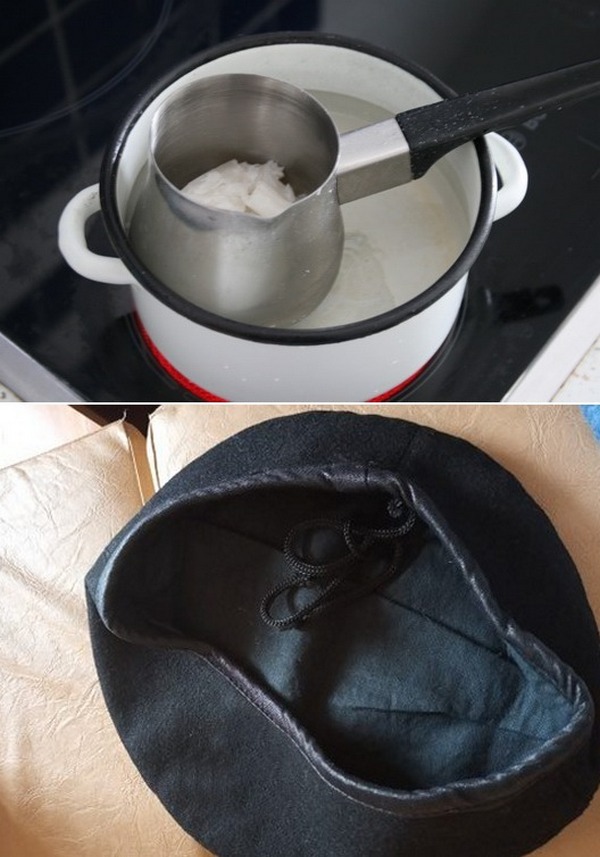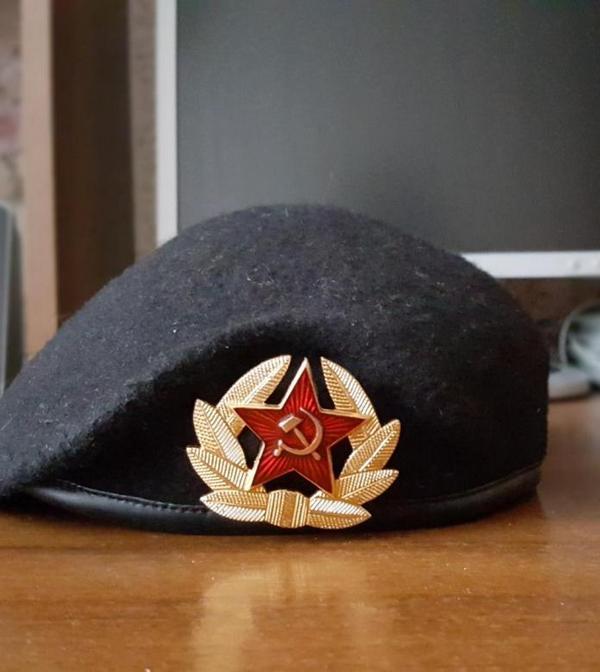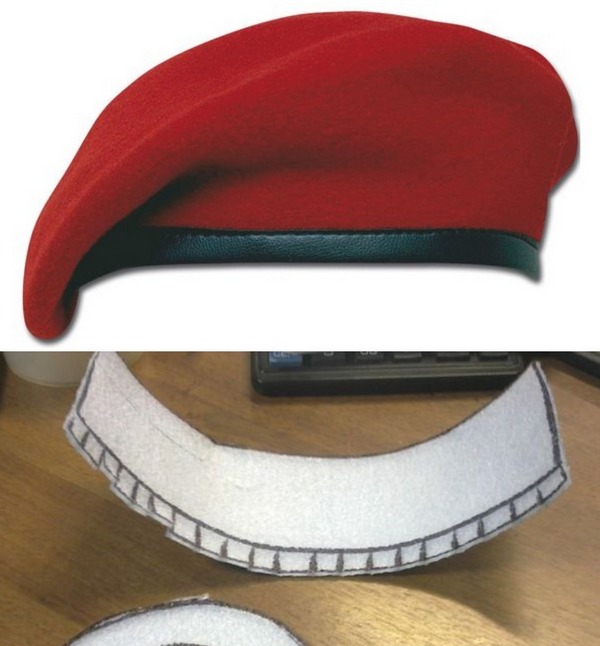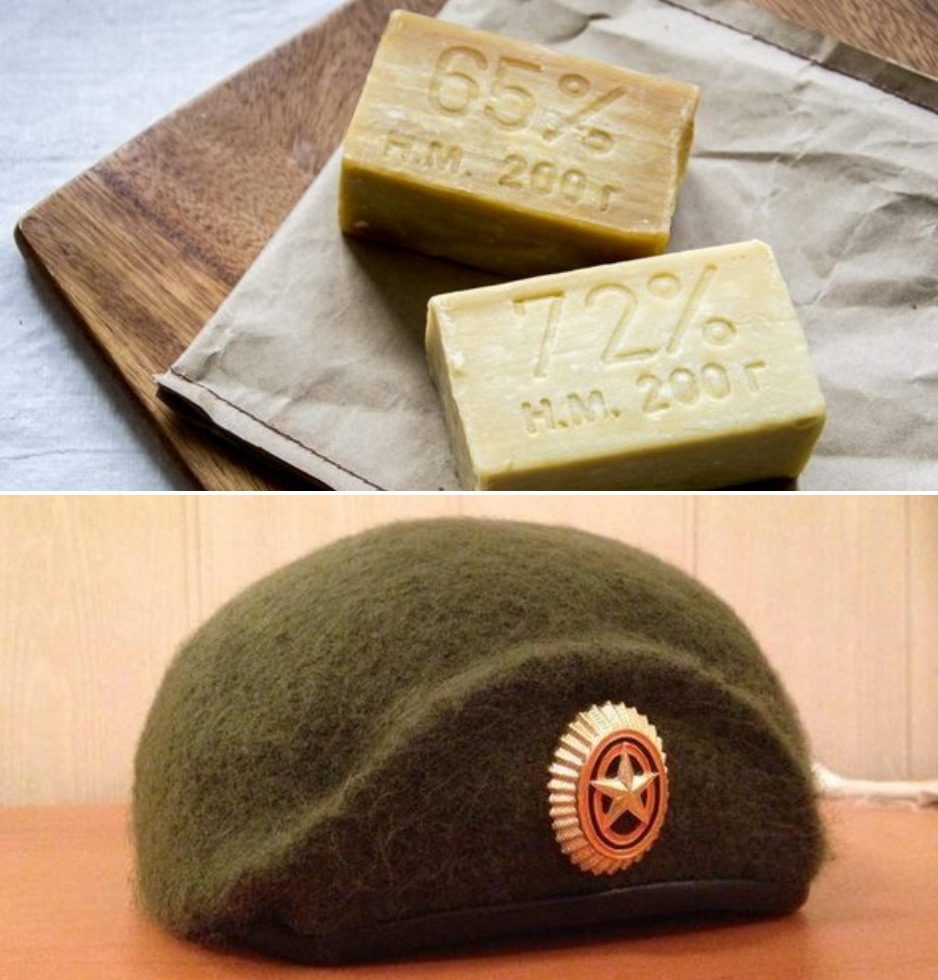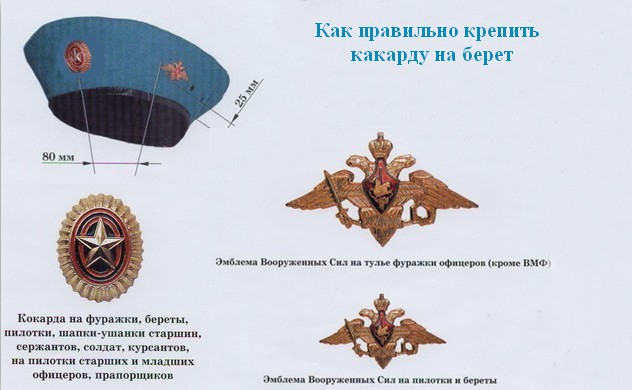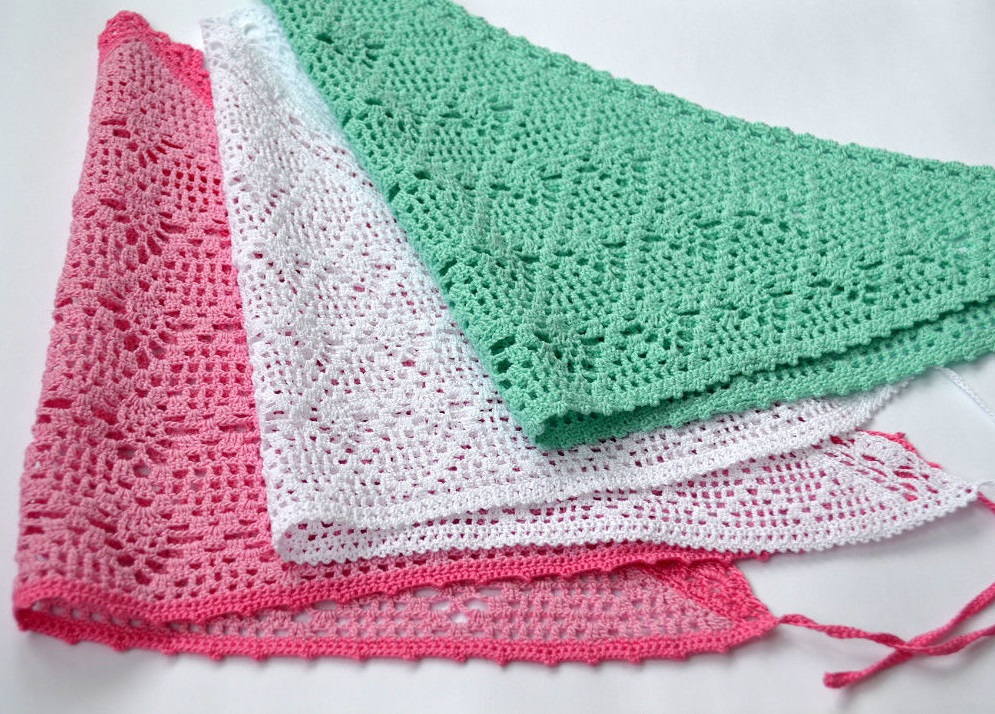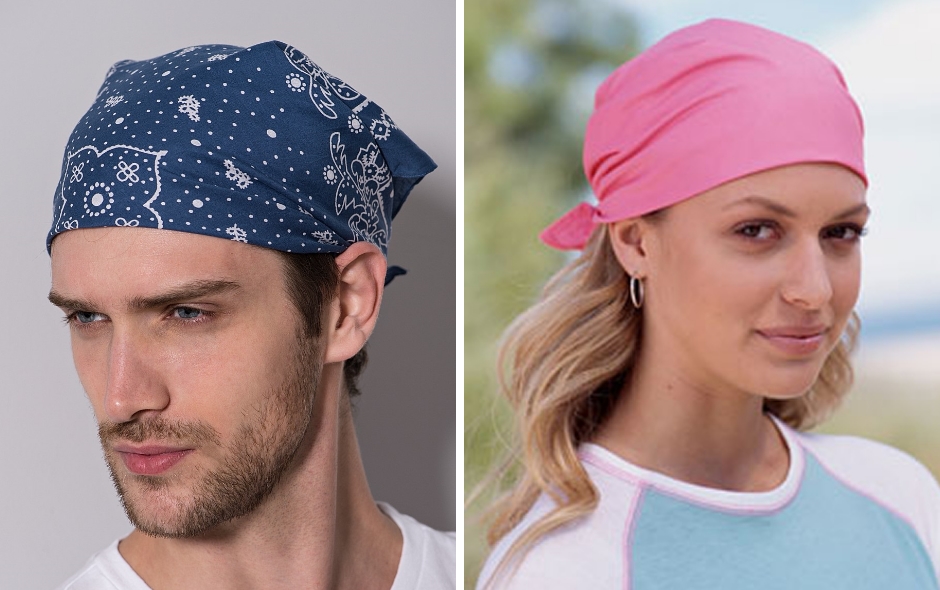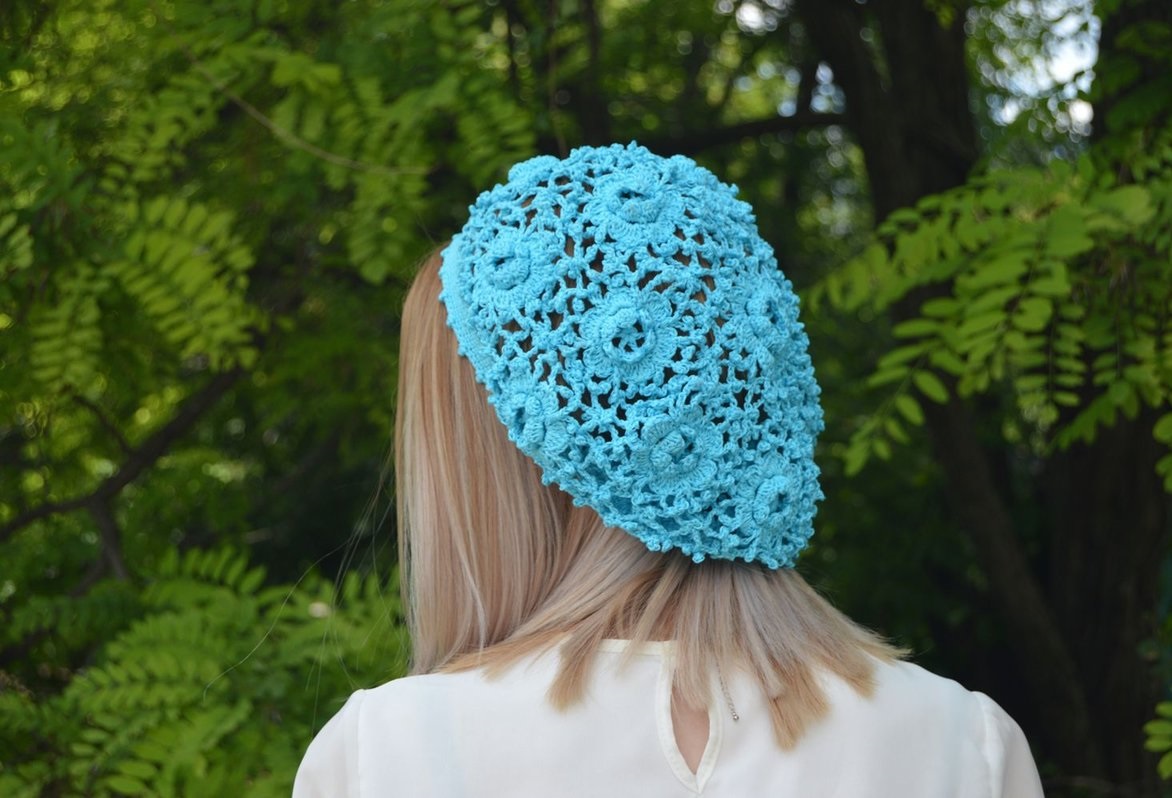Headgear is an integral part of the uniform in all branches of the armed forces. In order for a soldier's appearance to comply with regulations, the hat must sit well on the head. Both a demobilized soldier and a recruit must know how to beat off a beret; this method of processing will definitely come in handy in the army. The technique got its name due to the fact that in Soviet times the product was given the correct shape using a hammer. Now other means are used.
Types of berets and wearing rules for different branches of the military
A blue, orange or black beret is the most common headdress of the military. There are other types of this product, for example, part of the official uniform of some civilian professions (stewardesses, conductors on long-distance trains). The beret is a favorite headdress of various patriotic, paramilitary organizations.
| Branch of the military | Color | Peculiarities |
| Ministry of Internal Affairs | Maroon | They have the right to wear berets only particularly distinguished employees |
| Ministry of Emergency Situations | Orange | Seamless, made of felt |
| Airborne Forces and GRU Special Forces | Blue | Conveniently adjustable in size |
| Marine Corps | Black beret with emblem | Compact |
The maroon beret with a seam does not have flags or other decorative elements, but it can have the logo of the troops. It is received only by those who have successfully passed the tests and demonstrated the required level of physical fitness. At the parade, it is worn tilted to the left side so that the uniform of all participants in the event is uniform.
This headdress is made of wool. It is a disk without a visor with the addition of a cockade and a flag, it comes in two types: seamed and seamless (droplet). The first sewing method is used when the product consists of a single piece of fabric. The second manufacturing method is used if the hat needs to be made from several pieces of material. A military beret with a seam is more convenient to beat off. The droplet is easier to adjust in size.
The rules for wearing the beret require that the military man's beret sits vertically on his head. To do this, it is given a shape. More details about the proper appearance of a branded cap can be found in the order of the Ministry of Defense of the Russian Federation dated September 3, 2011, No. 1500 "On the rules for wearing military uniforms and insignia of servicemen of the Armed Forces of the Russian Federation." The lower edge of the cap should be strictly parallel to the forehead line. A tilt to the right is required. The edge should rise above the eyebrows by 3 cm. To put the cap on correctly, preliminary processing of the fabric is necessary. This is exactly why you need to know how to beat off a beret.

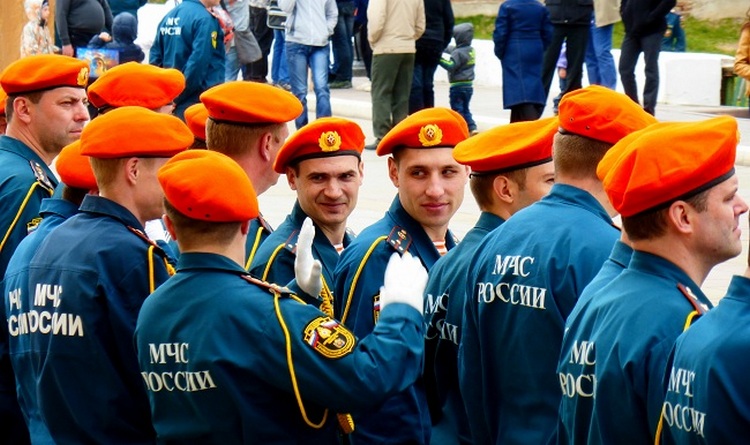
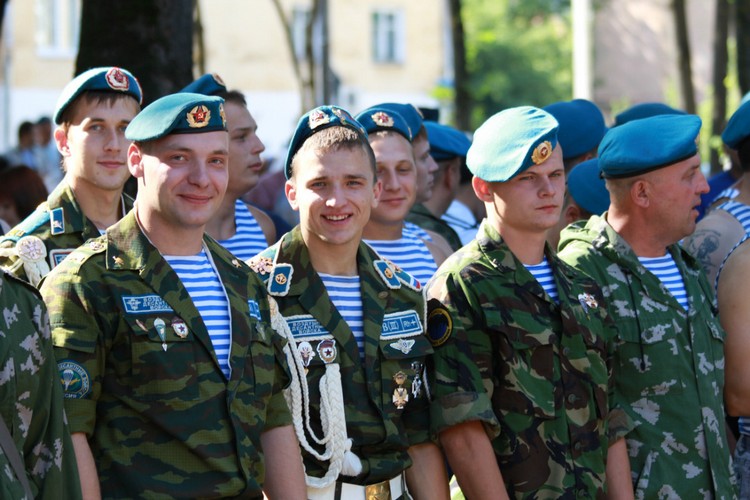
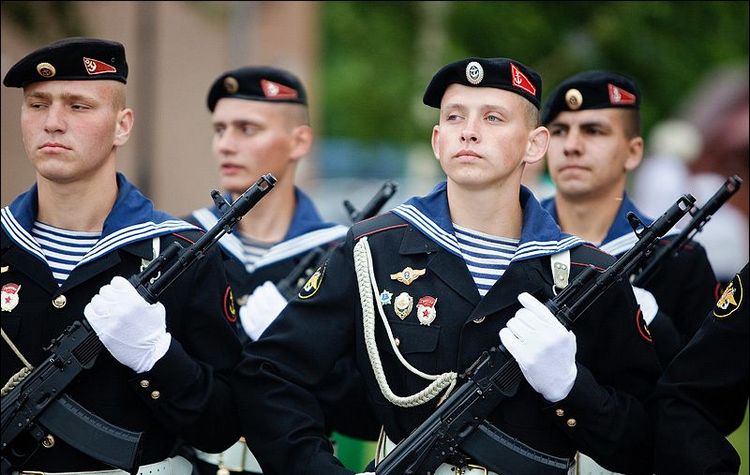
Methods of beating
There are several ways to prepare the product for processing. First, a black or blue beret is sprayed or soaked in hot water. All types, except for the maroon one, are beaten to the right side. The product is usually processed:
- with a hammer (or mallet);
- with a wooden or metal spoon;
- wet method (you must first rip open the lining).
Pliers are used as an aid to shape. During drying, you will need clothespins. For seamed berets, preliminary adjustment to size is required.
The formation of the main parts of the headdress will be the same for all processing methods. The crown is smoothed to the right (the maroon beret is an exception). Then, on the same side, a semicircle is made in the ear area. To create an arch, you need to take the cockade with your left hand, and at the same time make a piping with your right hand. The surface is leveled, stains and folds are removed.
The product is processed only from the inside. In no case should the front side be beaten, otherwise the beret will become unusable.
With a hammer
This method is suitable for men's and women's berets. Both the seam product and the drop are suitable for processing. The entire procedure will take no more than five minutes.
| How to give the correct form in accordance with the charter: a detailed step-by-step algorithm | Wet the beret of the Airborne Forces, the Ministry of Emergency Situations or the special forces. Steam it with an iron, put it on the table and beat it with a hammer (spoon) in a circle |
| The main advantages of the method | Fast |
| Flaws | The tool is not always at hand |
The most convenient way to moisten the fabric is with a spray bottle. You don't need to wet it too much, just spray it lightly.
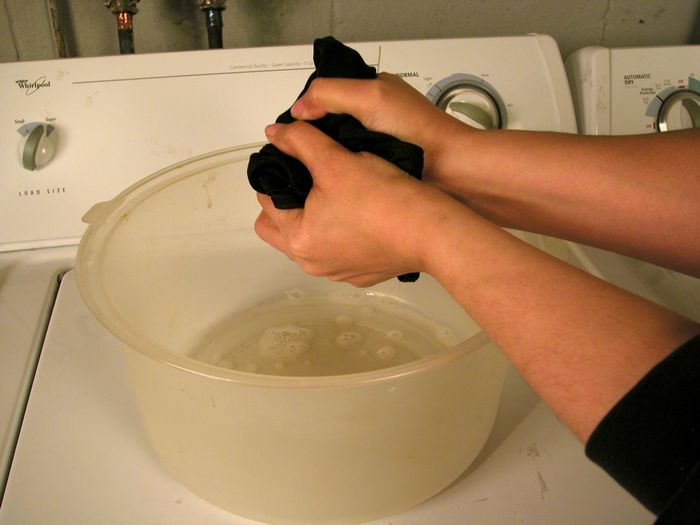
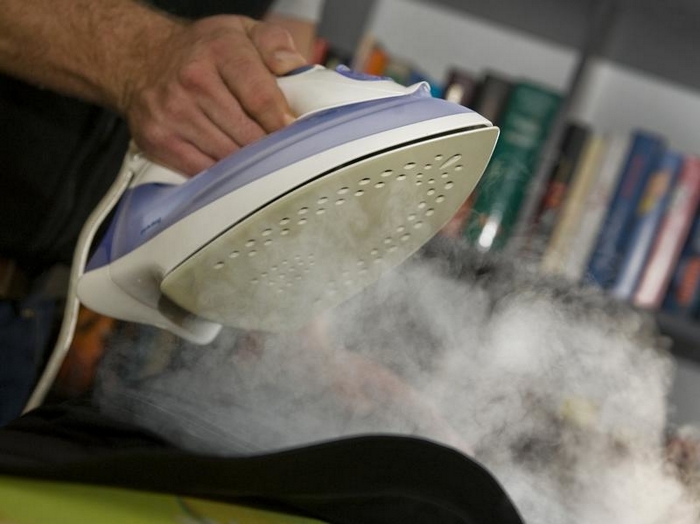
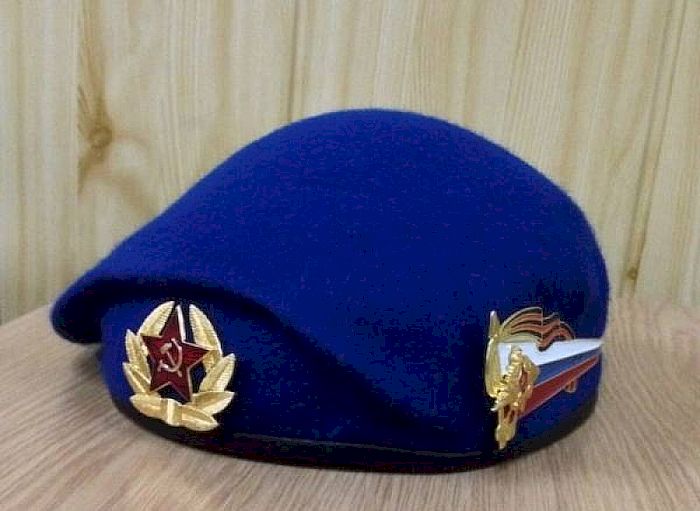
Manually
These methods are more labor-intensive. With due diligence, any employee can master them. The main thing is practice.
| Methods | How to give the correct form in accordance with the charter: a detailed step-by-step algorithm | Pros | Cons |
| On the head | Insert the cockade, moisten the hat and put it on. Give it the desired shape, leave it on your head until it dries. Make a sharp edging with pliers | Does not require additional devices | Suitable for droplets only |
| With the help of newspapers | The procedure is the same, but the wet product is put on a voluminous ball of crumpled newspapers instead of on the head. At the end, the beret is folded to the right side. | No need to put a wet hat on your head | The method is not suitable for seamed berets. |
| With a wet towel | Wash the uniform headdress of the young army or airborne troops. Put a damp towel folded several times into it, iron through two layers of gauze. Tap the edges of the beret with a hammer | Fast | It takes a long time to dry, you need a lot of gauze. Before you beat off the suture beret, you need to find a towel of the right size |
| On the mannequin | Moisten the fabric with a spray bottle, fix with clothespins, leave until dry. Try it on. If the shape needs to be adjusted a little, you can re-wet the paratrooper, special forces or Emergencies Ministry beret | It's more convenient to dry than on yourself | The size of the mannequin does not always correspond to the head of the hat owner |
In the last method, any round object can be used instead of a doll. Most often, a soccer ball is used for this purpose. It is convenient to hit the beret of the Ministry of Emergency Situations or a paratrooper on a glass jar, but you need to be careful.
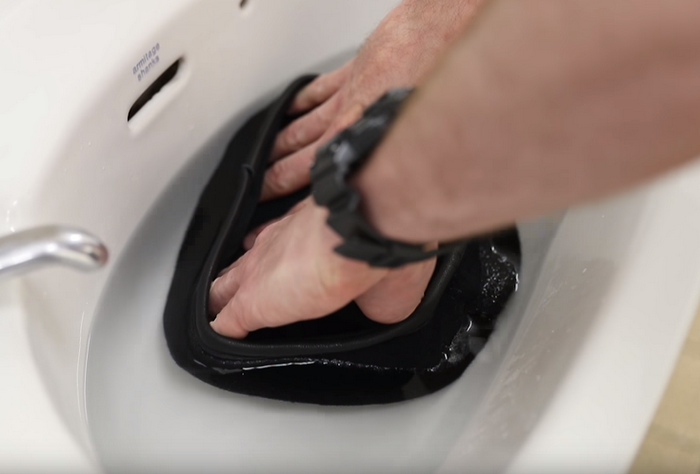
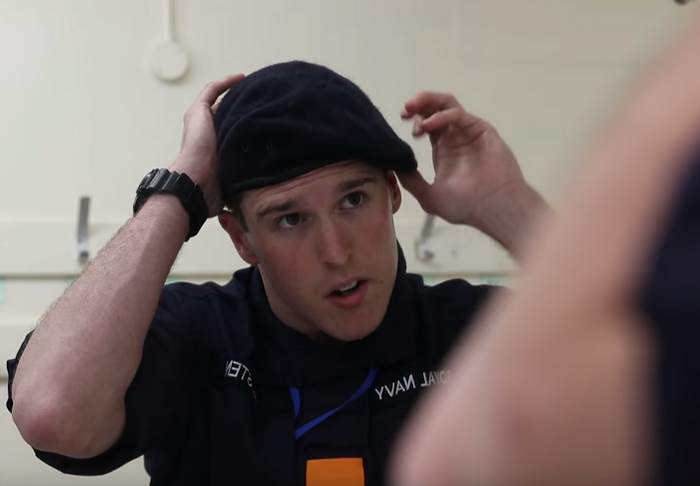
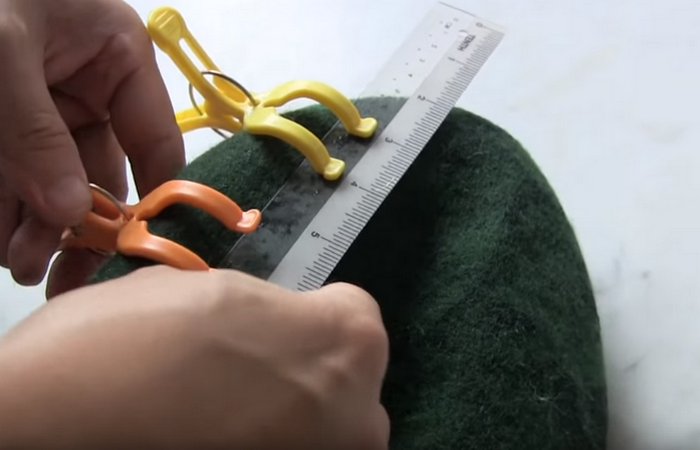
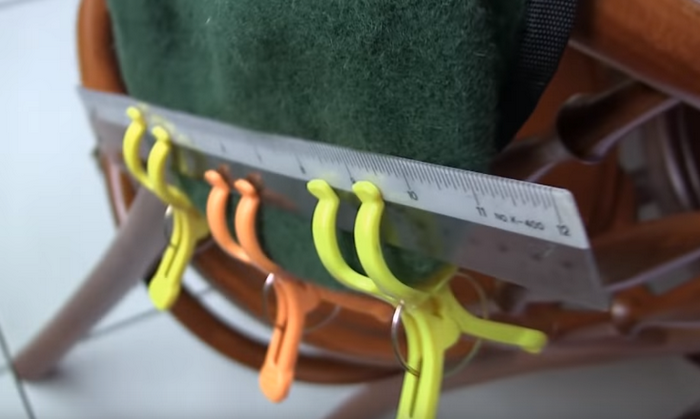
For a perfect fit
This is the most difficult method, which is called wet. Before starting work, the lining must be ripped off. You will need any shaving foam.
| How to give the correct form in accordance with the charter: a detailed step-by-step algorithm | Turn the young army soldier's or paratrooper's beret inside out. Remove the fabric sewn to the inside of the cap. Wring it out, insert the cockade. Put it on, shape it. Beat it to the right (for maroon items - to the left). Holding the arch, smooth the crown forward. Rub shaving foam evenly into the material over the entire surface. Leave until dry. |
| The main advantages of the method | The padding helps create a perfect fit |
| Flaws | The method is labor-intensive and time-consuming. Before giving the beret its shape, it needs to be unripped. |
At the final stage, a part similar to a cockade is cut out of a piece of plastic. It is placed behind the lining and secured with tape. In a correctly beaten beret, it should be located directly under the metal element.
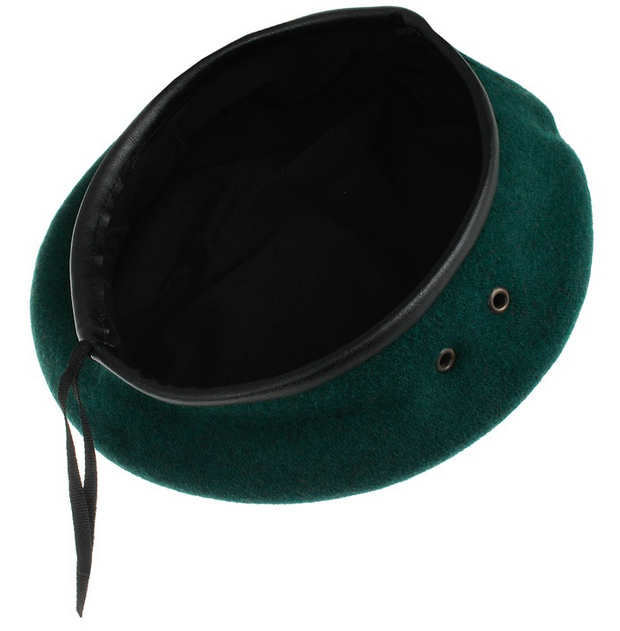
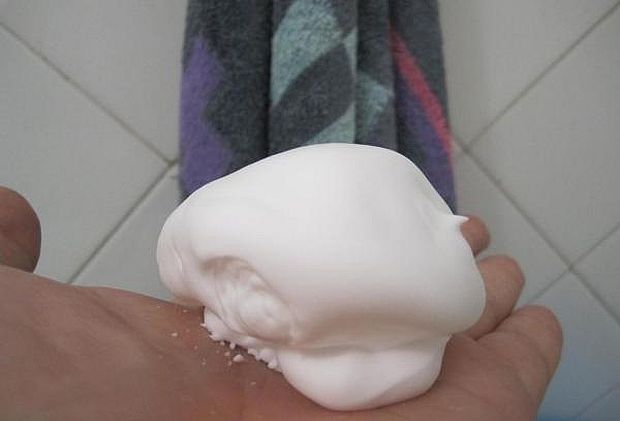
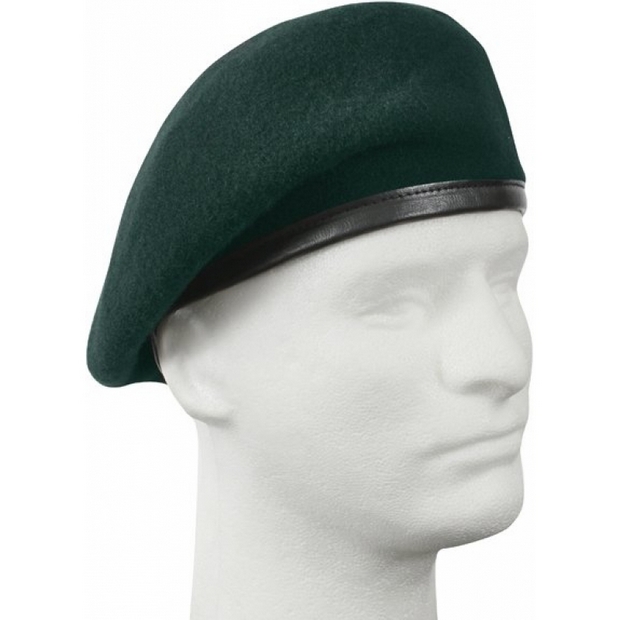
Fixing agents
Pliers (or combination pliers) are used as auxiliary means for fixing the headgear of the Airborne Forces and other troops to form the edging and clips. Various liquids and substances may also be needed. Each of them has its own advantages and disadvantages. The most popular method is with shaving foam.
Shaving foam
The product is applied at the final stage of work, evenly rubbed over the entire surface of the material. Leave for an hour and a half. After processing with foam, pellets remain, they are removed with a razor for clothes to wear a beret without protruding lint. The method is effective, but time-consuming.
Sugar water
It is used at the beginning of the work. While the beret is being beaten, the fingers are moistened in water in which sugar is dissolved, for better fixation of the fabric. The duration of the process depends on the size of the headdress.
To prepare the solution, you need to dilute a teaspoon of sand in 0.5 cups of warm water. This type of fastening is not reliable. If an employee gets caught in the rain with a broken headdress, the product will immediately deform, since the water and sugar will dissolve.
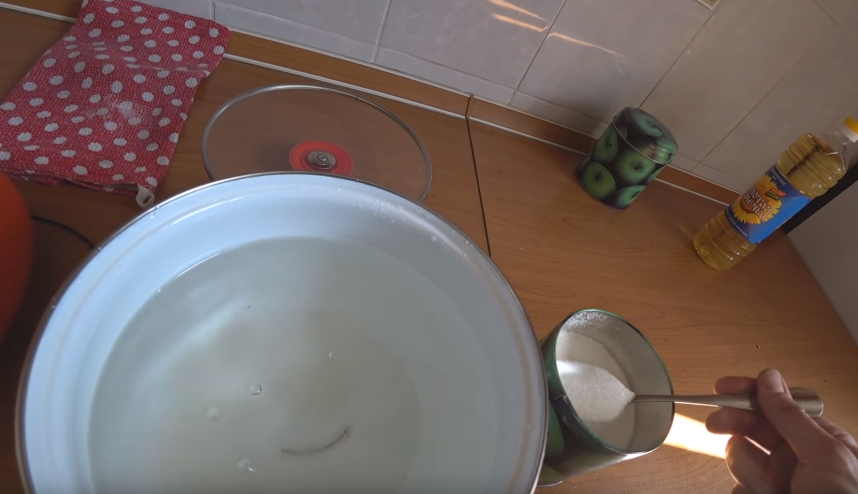
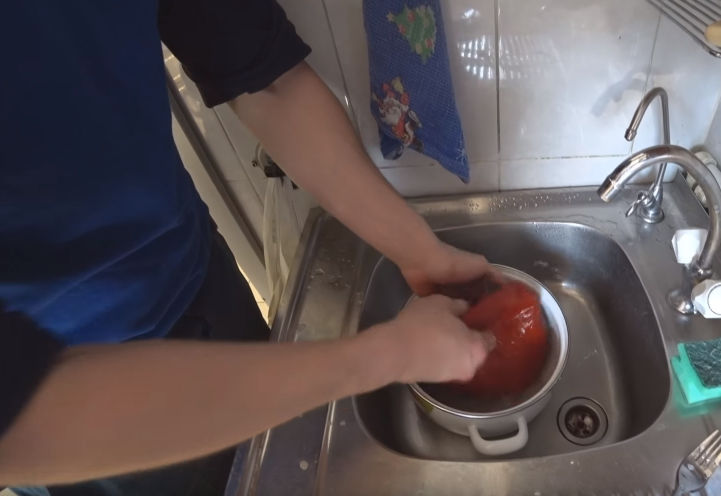
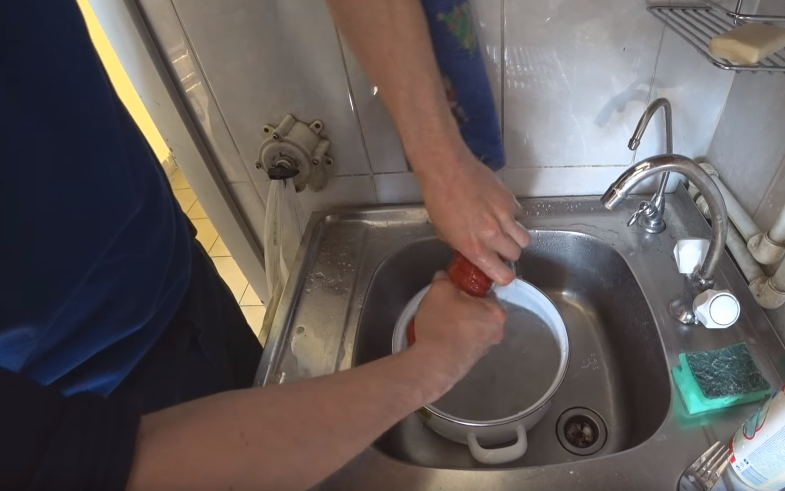
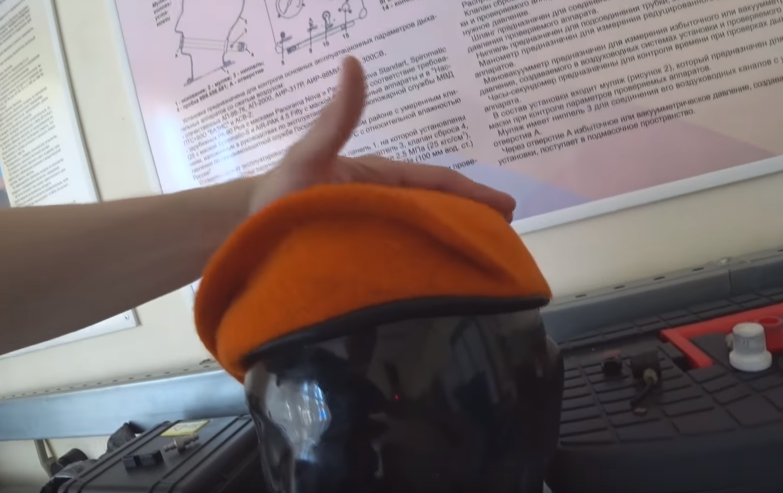
Starch
The army headdress is soaked in starch before drying, and then put on the frame. No need to wring it out. The processing time is 20-30 minutes. To beat the hat beautifully, you will need half a glass of starch, which is diluted in a liter of water until completely dissolved. The product holds its shape well, but during soaking it is necessary to cover the visor with something.

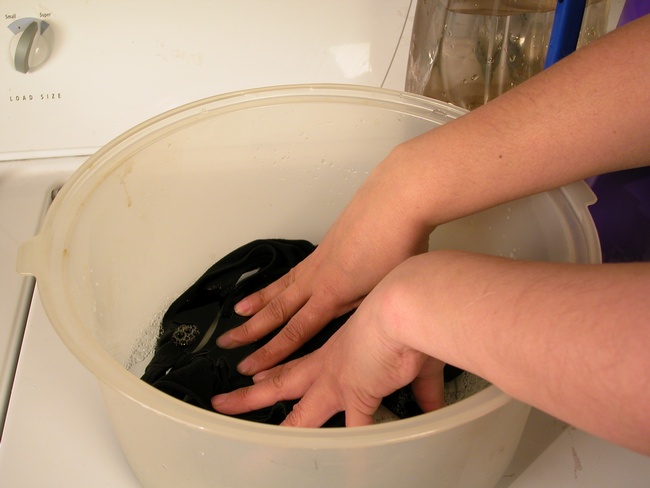
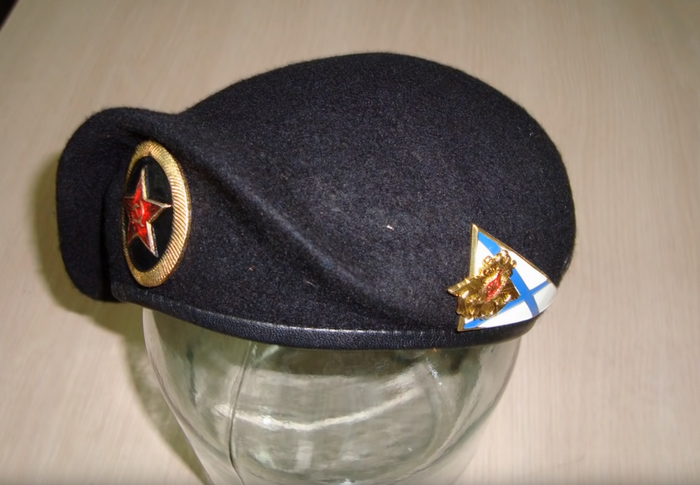
Glue layer
The military should definitely know how the beret is beaten with a layer of glue. The product is applied at the final stage and is attached with a heated iron for 2-3 minutes. The layer is cut out of interlining, cardboard or a plastic card, helps to give the product a strictly vertical orientation. Beforehand, you should take measurements and make a pattern of the inserted part. The downside is that there is a high probability of making a mistake in the sizes. The advantage is that this additional element is resistant to moisture.
Paraffin
Apply before drying and shaping the headdress. Leave the product on for 1-1.5 hours. Before processing, the product must be moistened, straightened and left to dry. The fabric is greased with melted paraffin from the inside. The effect lasts for a long time, but the process itself is unsafe: it is easy to get burned. This method can knock off a beret drop.
Rigid frame
The frame of the paratrooper's cap can be made of plastic. It is inserted at the end of the processing and fixed with double-sided adhesive tape. The beating procedure takes 2-3 minutes. The parts that require fixing are cut out in accordance with the sizes of the beret fragments. The downside is that a pattern is needed. The main advantage of the method is that the headdress does not need to be wet.
Laundry soap
This simple method will help you quickly beat off a beret at home. The pre-wetted hat is rubbed with soap to give it shape. The procedure can last 10-12 minutes, depending on the size of the headdress and the specifics of the material. To make the edging sharp, it needs to be slightly pressed with your hands. This method is only suitable for seamed caps. Its advantage is the availability of an auxiliary tool.
It should be remembered that laundry soap has an unpleasant smell that lasts for a long time, even if employees actively wear a beret. To neutralize it, you can treat the material with any industrial fragrance. Another option is to air the product in the fresh air after it has completely dried for two to three hours.
Final processing
After processing the product, it is necessary to remove the pellets and pile correctly, otherwise the headdress will lose its appearance and will not look according to the regulations. This is done when the beret is completely dry. To remove protruding hairs, you need to:
- Remove the seamed beret from your head (other options are also possible – drying on a ball, jar, or mannequin).
- Carefully shave the entire surface with a disposable razor, from the edges to the middle.
- Gently blow off any lint, dust and debris.
- Treat the inside of the product with hairspray.
At the final stage, do not skimp on the fixing agent. It is better to use the entire bottle. To remove pellets, you can buy a special machine. It will help solve the problem of protruding hairs that constantly come out during the beating process.
All military personnel are taught how to attach a cockade correctly. The easiest way is to make a perforation using any thin, sharp object, insert two parts of the clamp into the holes and bend them to the stop in opposite directions. The flag is fixed in the same way, only on the side. The cockade is attached in the front, exactly in the center.
Before beating off a seamless or drop beret, the serviceman is recommended to once again carefully read the provisions of the charter on wearing headgear. Each branch of the military has its own nuances. The main thing is to know which way the hat should bend, then the work will be successful. Don't forget about your hair: it shouldn't stick out from under your beret.
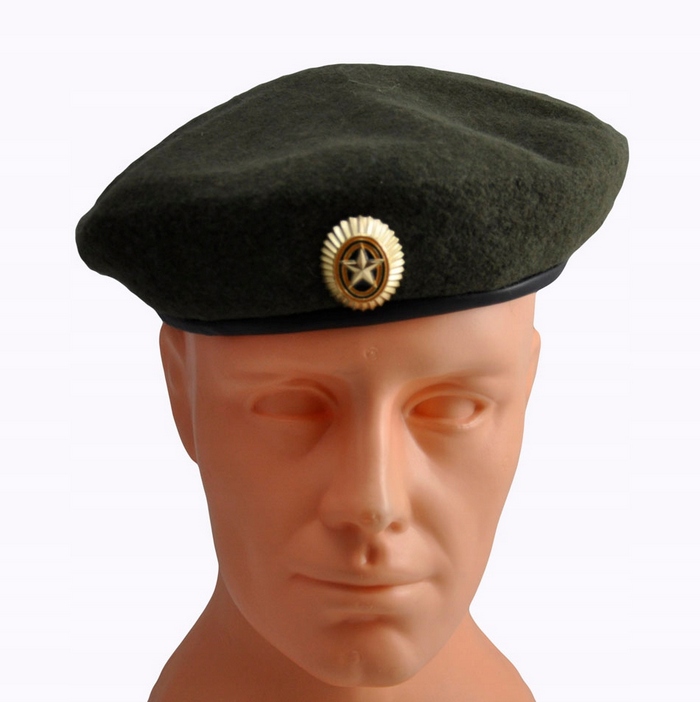
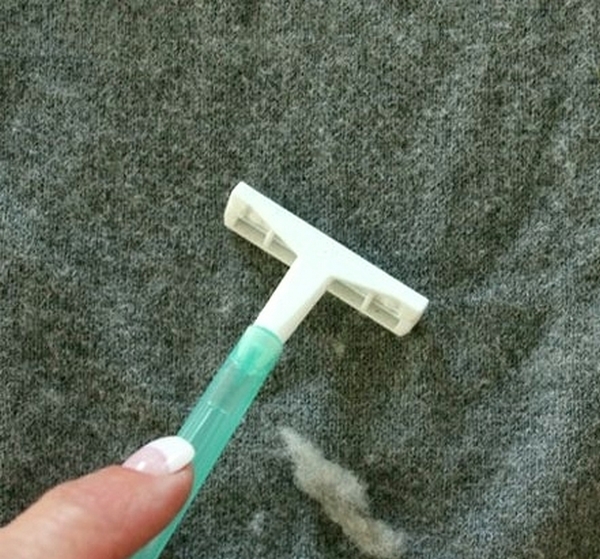
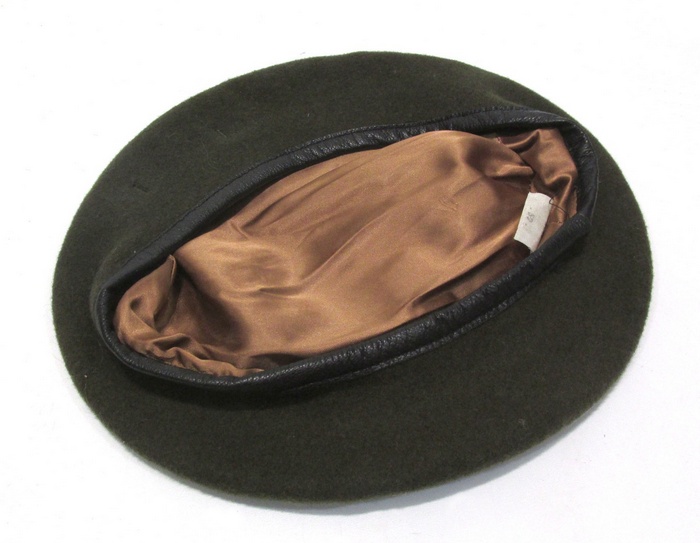
Video

